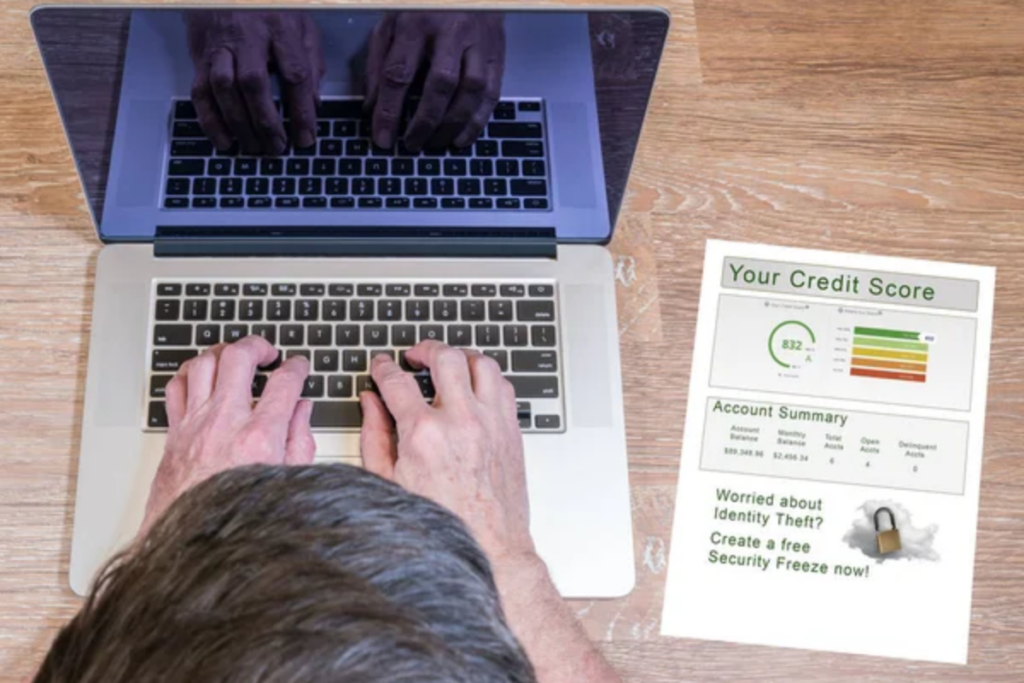How to Check Your Credit Report for Free: A Comprehensive Guide
Today, it is equally important to monitor one’s credit report in the financial markets. A credit report is also another crucial document containing information on how you manage loans, credit cards, and other credit related facilities.
The other advantage of frequently reading your credit report is that it keeps you updated by making sure that you do not have errors or fraud that brings down your credit rating. Now that we understand what credit reports are we will be able to guide you through how you can get your credit report for free.
Why Is Your Credit Report Important?

Credit report is similar to the school report card; it portrays your credit worthiness. It has records of your credit borrowings and the repayment history related to it. It is used by the lenders in evaluating your credit worthiness in case you applied for a loan, mortgage or credit cards. Credit reports can further, also, be used by virtually every organization as well as individuals in screening processes of renters and employers. Here’s why it’s essential:
- Monitors Your Financial Health: It is recommended this should be done frequently so that one assesses the overall financial state as well as the score.
- Identifies Errors: Credit reports may contain some false information that has a tendency of affecting credit scores in the process. The good thing is that most of these mistakes can be detected and rectified when going through the report..
- Prevents Fraud: Regular credit check is a good way of identifying if somebody has stolen your identity or if somebody is involved in fraudulent activities.
How to Check Your Credit Report for Free
Thanks to various consumer protection laws, you have the right to access your credit report for free. Here’s a step-by-step guide on how to do it:
1. Visit AnnualCreditReport.com
The official website for accessing your free credit report is AnnualCreditReport.com. This site is authorized by the federal government and is the only place where you can get your credit report from the three major credit bureaus—Equifax, Experian, and TransUnion—once every 12 months at no cost.
🚨 TUIC Errors + Low Credit Score?
CreditScoreIQ helps you build credit faster by reporting utility bills to all 3 bureaus—while you dispute errors.
Start Building Credit Today →2. Provide Personal Information
To access your credit report, you’ll need to provide some personal information. This includes:
- Name
- Date of Birth
- Social Security Number
- Current and Previous Addresses
The website will use this information to verify your identity and ensure that the credit report is being accessed by the rightful owner.
3. Select the Credit Bureau
Once your identity is confirmed, you’ll have the option to choose which credit bureau’s report you want to view. You can choose between Equifax, Experian, or TransUnion. It’s advisable to stagger your requests throughout the year, such as checking one bureau’s report every four months, to keep an eye on your credit year-round.
4. Answer Security Questions
Before accessing your report, you’ll be asked a few security questions related to your financial history. These may include questions about past loans, the amount of your monthly mortgage payment, or the name of a lender you’ve worked with in the past. Answering these questions correctly will give you access to your credit report.
5. Review Your Credit Report
Once you’ve successfully accessed your credit report, take the time to review it carefully. Look for any inaccuracies or unfamiliar accounts that could indicate identity theft. Your report will include the following sections:
- Personal Information: Your name, Social Security number, address, and employment history.
- Credit Accounts: Details about your credit cards, mortgages, auto loans, and other accounts, including the account balance, credit limit, and payment history.
- Credit Inquiries: A list of companies that have accessed your credit report.
- Public Records: Information about bankruptcies, foreclosures, or other public financial records.
- Collections: Accounts that have been turned over to collection agencies.
Understanding the Information on Your Credit Report
Your credit report is divided into several sections, each providing critical details about your financial life. Here’s a breakdown of what you’ll find:
| Section | Description |
| Personal Information | Contains your name, Social Security number, date of birth, and current and previous addresses. |
| Credit Accounts | Lists all your credit accounts, including credit cards, loans, and mortgages. It shows your payment history, credit limit, and current balance for each account. |
| Credit Inquiries | Lists the companies or entities that have accessed your credit report, including both hard and soft inquiries. |
| Public Records | Contains information about legal matters such as bankruptcies, foreclosures, or tax liens that may impact your creditworthiness. |
| Collections | Displays any accounts that have been turned over to collection agencies, which can significantly affect your credit score. |
What to Do If You Find Errors on Your Credit Report
It can be quite irritating to find some mistakes on your credit reports, but it is always important that you correct them. Here’s what you should do if you spot any inaccuracies:
1. Contact the Credit Bureau
First, you need to communicate with the credit bureau that provided that report. A consumer can lodge a dispute through a website, through the post or via a phone call. Support your claim with primary documents, like account statements, letters from your creditors, among others.
2. Contact the Creditor
In cases where the error is identified to be inclined on an account, it is proper to contact the creditor. Sometimes, they can solve the matter faster than the credit bureau can handle it and provide you with a favorable outcome.
3. Follow Up
The bureaus also have 30 days in which they should conduct a proper investigation. They will inform you of the result, and supply you with the revised credit report, if it is required. In case the dispute is in your favor, the bureau will also inform any lenders who used your credit report in the past six months.
Other Ways to Get Your Credit Report for Free
In addition to the free annual report, there are other circumstances where you can access your credit report without cost:
1. Monitoring Services
There are some credit monitoring services which provide you with a free credit report of your credit subscription. These services give you updates and notifications concerning your credit so that you can be acquainted with any alteration to your credit status.
2. Credit Card Issuers
Most of the credit card companies have started providing credit score tracking services to their users for free. Although this is usually limited to your credit score, not your actual credit report, some issuers offer widgets where you can access your credit report online.
3. Government Programs
If you are the target of identity theft; if you are unemployed and intend to seek employment within 60 days; if you receive public assistance, you qualify for an additional concurrent free credit report. You can do this by writing to the credit bureaus of your choice, you have a right to request for this.
4. State Laws
Some states offer residents additional free credit reports. For example, residents of Colorado, Georgia, Maine, Maryland, Massachusetts, New Jersey, and Vermont are entitled to a free credit report every 12 months from each of the three major credit bureaus in addition to the federal free annual report.
Tips for Maintaining a Healthy Credit Score
Monitoring your credit report is one of the ways, which are aimed at ensuring you have a good credit score. Here are some additional tips:
- Pay Your Bills on Time: It is therefore worth noting that payment history is the most influential of all credit score components.
- Keep Balances Low: Credit card balances that are too high may have an adverse effect on your credit score.
- Limit Credit Inquiries: Also, the frequency to which you apply for credit cards or loans will affect your score; do not apply for several credit cards or loans within a short span of time.
- Diversify Your Credit: It is however important to note that a good credit mix is good for your score; it is healthy to apply for credit cards and mortgages as well as auto loans.
- Check Your Report Regularly: It is advisable to practice checking the credit report at least once annually to identify the errors as well as the general wellbeing in the financial field.
Conclusion
It is as simple as checking credit reports where you can be free to check your credit report status. It is, therefore, essential to review credit reports periodically so that you can monitor your credit position, detect fraud and correct mistakes that may exist so that you can increase your score. Do not forget that when you have a good credit score, you have more room in terms of interest rates and loan approvals and other financial opportunities.
If you want to learn more about credit management practices, you may also want to seek other online resources related to credit reports and scores including the Federal Trade Commission’s.
Ready to Improve Your Credit?
Disputing TUIC errors is step one. Step two? Boost your score by reporting utility payments with CreditScoreIQ.
Get Started Now (Only $1 Trial) →3-bureau reporting • $1M identity insurance • Dark web monitoring

